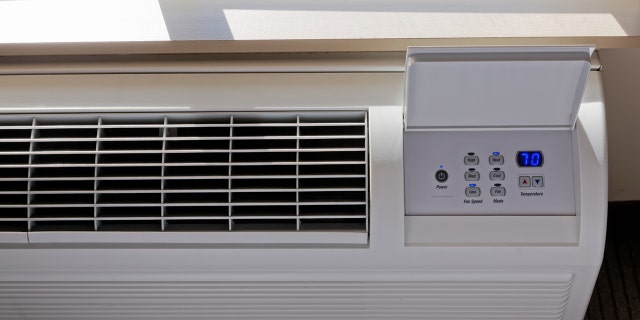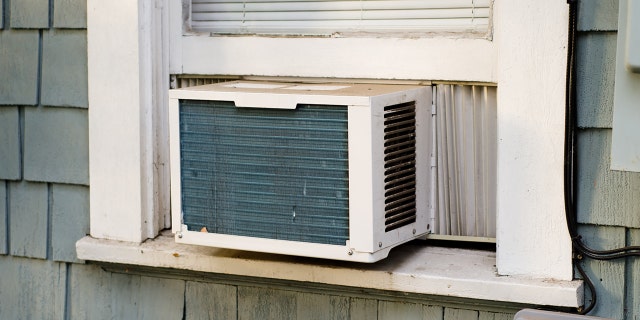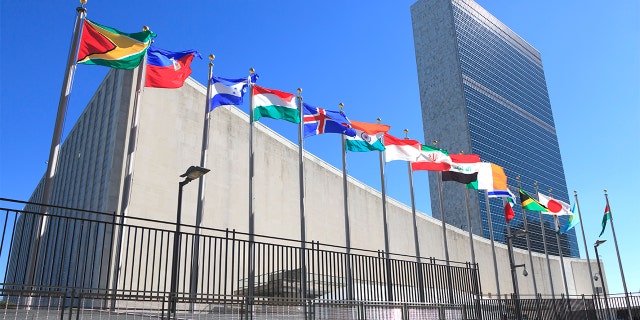It’s the scariest moment of the year for many homeowners – that first really hot day, usually in May, when we turn on our air conditioners for the first time since the previous summer and cross our fingers that it still works.
If not, it will need to be repaired or possibly replaced, and the 2022 air conditioning season is shaping up to be a very expensive one thanks to environmental regulations. Meanwhile, the Senate is busy considering a United Nations climate treaty called the Kigali Amendment that would make things worse.
HEAT SPREADS ACROSS NATION AS PLAINS, GREAT LAKES TO SEE SEVERE STORMS

You can reduce your AC unit's energy consumption by as much as 15 percent with nothing more than simple maintenance. (iStock)
The news is bad whether your air conditioner is old or new. Most pre-2010 units were designed to use a refrigerant called R-22 that isn’t made anymore – the Environmental Protection Agency banned further production in 2020 over its contribution to depleting the earth’s ozone layer. Those needing to replace R-22 lost from a leak will have to pay hundreds more for this common repair.
More than half the systems are newer ones using a refrigerant called R-410A. Though initially hailed as an ozone-friendly improvement over R-22 (it was even trademarked "Puron"), R-410A subsequently came under attack as a contributor to climate change. In December 2020, Congress slipped production caps on it and similar refrigerants into a big must-pass spending package. EPA launched its rationing program on January 1st of this year, and the wholesale price of R-410A has already jumped 4-fold over pre-regulation levels to around $20 per pound and at least twice that retail. Systems typically need eight to 15 pounds.
Thus, 2022 will be the first summer where virtually every one of the nation’s 100 million residential central air conditioners relies on a refrigerant in short supply, thanks to federal environmental measures. As a result, millions of homeowners will be paying up to $400 more than they otherwise would for repairs that require adding refrigerant.

If you want to be sure your AC unit will work just as good next summer, don't let it fester. (iStock)
One reason these expensive restrictions were so readily enacted is that many opportunistic manufacturers of new refrigerants and air conditioners joined environmental activists in lobbying for them. They are happy to push aside the old in order to sell more of the new. Some of these companies are already advertising their planet-saving next-generation cooling products that, thanks to Congress, will own the replacement market regardless of cost.
CLICK HERE TO GET THE OPINION NEWSLETTER
The next political battle is over something called the Kigali Amendment, a United Nations treaty targeting R-410A and similar refrigerants in parallel with the domestic restrictions already in place. Per the Constitution, the Kigali Amendment requires ratification by two-thirds of the Senate.

New, York, NY, USA - September 24, 2016 - United Nations Headquarters: United Nations Headquarters in New York City: The United Nations General Assembly opens. (iStock)
The Kigali Amendment was recently approved by the Senate Foreign Relations Committee. A vote before the full Senate has not yet been scheduled but could come soon.
CLICK HERE TO GET THE FOX NEWS APP
However, a consumer backlash may be brewing, if not this summer than very likely by 2024 when EPA’s refrigerant quotas get much tighter. As it is, Congress could revisit its domestic limits on R-410A and consider mid-course corrections to cushion the blow. But reform efforts would become nearly impossible if the Kigali Amendment is ratified and the United Nations bureaucracy is placed in charge.
Perhaps that’s why there’s a rush among Kigali Amendment proponents to ratify it now – before things start to heat up.










 English (US) ·
English (US) ·